By Sandhya Sridhar
What one eats is the result of environment, culture and upbringing. It has to do with geography too, in the sense that what grows where you live is what you consume the most. But today, food is political too.
Food choices are in truth, personal. They should ideally have nothing to do with anyone other than you, and perhaps, your immediate family. But today, social condemnation shapes opinions and then a generational shift in food habits. Not just that, modernisation of available foods play a role, but then that is quite another topic altogether.
The politics of food plays high, along with linguistic, caste and the left or right. And today, beef is the calling card, playing a make or break role in whether you eat it or not, as do your opinions on the consumption of beef.
The history of any country ebbs and flows as practices change, ideas transform and a new reality replaces the old. To hark back to the old and want it in the present, is at best foolish and unrealistic. We were not the people our forebears were.
On one hand is the beef-eating argument, and on the other, the environment concern. Which then do you play? The unfortunate reality is that both are played simultaneously and disingenuously, raising outrage, anger and hatred all at the same time among different peoples.
Meat, it has been established, is one of the greatest pollutants, along with diary. In fact, it has been a known fact for years that methane emissions thanks to the beef industry have caused much harm to the environment. Methane, a by-product of cattle, makes for an extremely potent greenhouse gas that contributes greatly to global warming. Goat, lamb and beef together, have the highest impact on global warming. In 2019, Goldsmiths, University of London, banned the sale of beef on campus, along with other initiatives like the ban of single-use plastics. This was a one-of-a-kind initiative though and did not have a resonance anywhere else.
Back home in India, beef has always hit the headlines in a reactive kind of way, when political points are counted in killing a cow and eating it publicly as protest against the centre’s ban on the sale of cattle for slaughter. Then we have eminents like Ramachandra Guha who ate beef and tweeted about it resulting in much controversy, then deleting his offending tweet. Then more recently, Sudha Murthy stirred up a storm with her comment on carrying groceries and spoons when she travels, so that she can safely eat vegetarian food. Murthy’s spontaneous sharing of her eating practices while travelling, in an interview, had her become no less than an internet meme. Besides, she also became a ‘syndrome’ according to Dalit activists, as in the tweet below, calling her brand of vegetarianism akin to the practice of untouchability.
‘One man’s food is another man’s poison,’ goes the old adage. What you like, I might not. Consider the pork-eating practices of some communities and in the North East, and how offensive it can be for some. But why should it be offensive at all?
The one reason I can think of, is that today, eating has become a public act. What in the old days was mostly within the confines of one’s home except during weddings or public gatherings or feasts, has become an everyday occurrence. Our lives are different and so are our eating habits. Yes, the eating of beef, once upon a time, could excommunicate you from your community or could have you exiled from your own.
M. K. Gandhi, in his autobiography, has related how as a very young man, he fell into the company of a friend with bad habits who he sought to reform. However, Gandhi himself fell under the influence of this friend, and was introduced to meat. He didn’t enjoy it very much. Yet, for a year, he continued to indulge in meat-eating, without the knowledge of his parents. It is his adherence to truth, and the fact that he was hiding it from his parents, that made Gandhi give up the habit, after a confession of the same to his father. But overwhelmingly, Gandhi was aware that, belonging to a family of staunch vegetarian Vaishnavas, he was doing something that he ought not to. Later, this became tied to his philosophy of Ahimsa. This story is well-known to anyone who has read the story of Gandhi, but the meat-eating affair is a personal and social choice, not political at that point. Why should it ever be?
However, food, as we see now, is highly political, as seen by this IITB controversy.
And then in wedding halls…
And as a religious practice…
And… on social mobility!
It boggles the mind something that’s so personal as what you put into your body, becomes a topic of public debate and acrimony. But the irrepressible argumentative Indian has found new life on social media.
The politics of food will not die anytime soon!

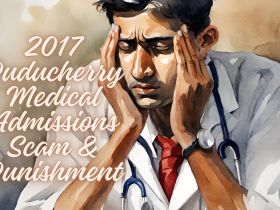

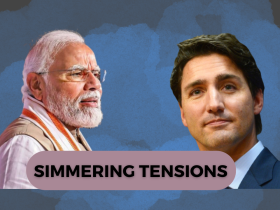
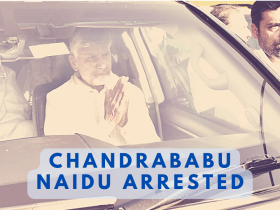
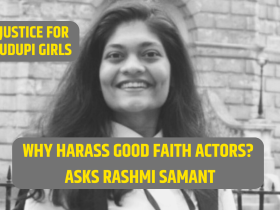
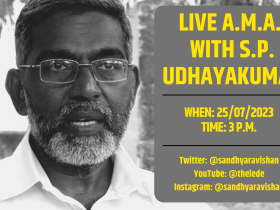



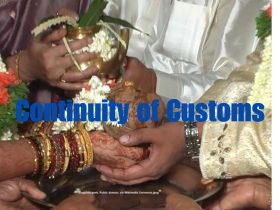


Leave a Reply